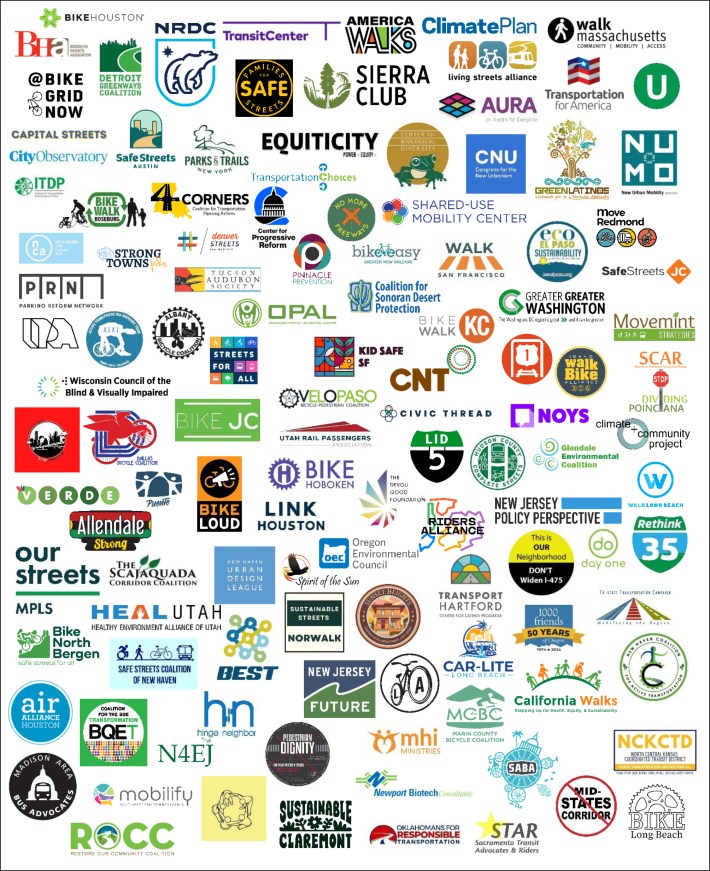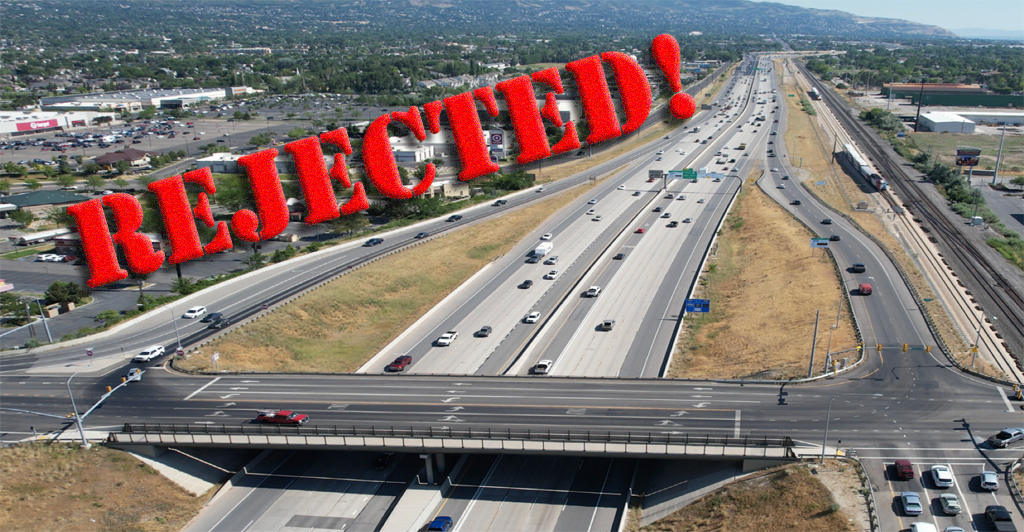Ban the boondoggle!
Leaders at all levels of government need to stop expanding highways, not only because such projects disproportionately impact low-income communities, but also because they are contrary to our climate and fiscal goals, a coalition of nearly 200 livable streets groups argues in a new campaign launching today.
"Endless highway expansions are pulling our country into an environmental, budgetary, and public health crisis. It’s time to end this destructive, unsustainable practice and set a responsible course toward a cleaner and more equitable future," says a letter signed by 194 community groups across the country that will be sent to state and federal transportation leaders.
It's obviously not the first time that local leaders on the ground have demanded transportation policies that "put communities and people first" — ahead of the needs of drivers who speed through or over them — but it's certainly one of the biggest efforts.
The letter, spearheaded by America Walks, is signed by groups large (Transportation for America, the NRDC, the Sierra Club) and small (Car-Lite Long Beach, Idaho Walk Bike Alliance, the Brooklyn Heights Association) and from (as Billy Bragg put it) the Big Church (WalkMassachusetts) to the Big River (Duluth Waterfront Collective, Greater New Orleans Housing Alliance) and out to the shining sea (Silicon Valley Bicycle Coalition).

"We're putting out the call that we need to stop funding new highways and highway expansions if we want to even remotely have a chance of achieving the goals of improving transit and reconnecting communities," said Ben Crowther, policy director of America Walks. "When your kitchen's on fire, you don't keep cooking, right? But that's what we're doing right now."
The urgency comes from the billions of dollars that are being funneled towards road projects from the Bipartisan Infrastructure Law, which did indeed provide record funding for transit and even created a "Reconnecting Communities" program — but still is mostly a highway-construction slush fund.
"The money for active transportation and transit were the most ever, but it's still completely dwarfed by the amount of money that we're pouring into new highway projects," Crowther added, citing the $33 billion that is funding just nine expansion projects (many of the letter signers are local groups fighting those very projects, which were featured in this year's Highway Boondoggles series).
During the proposed moratorium, according to the letter, all funding should be redirected from highway projects toward "community-centered transportation priorities," which means:
- "Fix It First": maintain existing roads and bridges before building new, larger ones.
- Safety first: retrofit dangerous roads to make them safer for people walking, biking, and driving.
- Reconnect communities: dismantle targeted highways and invest in thecommunities around them to increase opportunity and redress the harms theseprojects have inflicted. That includes "investing in policies that build homes close to jobs and amenities [and] providing clean air and water and making neighborhoods healthier, quieter, and safer," the letter states.
- Better transit: provide capital and operations funding for reliable, affordablepublic transportation that connects people to jobs, services, amenities, health care,and each other.
That last one is crucial for not only reducing car use, but a recent study showed that subsidies to transit agencies not only improve quality of service, but greatly improve revenue streams, as riders flock to better service.
"Federal infrastructure funding holds great promise for transit, biking, walking and accessibility projects," said Danny Pearlstein, spokesman for Riders Alliance, a grassroots group supporting transit in New York. "But even in New York City, state leaders have committed $5 billion to widening highways in the boroughs served by our iconic subway. Enough is enough. [Leaders] must ... give [constituents] genuine freedom to get around regardless of income, age or ability."
Transportation equity is one thing. Basic health is another.
"The highway system we have built in our country is unsustainable, both financially and environmentally, and disproportionately harms low-income and Black and brown communities," the letter states, adding that better use of federal money will "improve affordable housing, public health, and the climate crisis while creating hundreds of thousands of well-paying jobs."
The letter will be sent to leaders on at all levels of government, but every day residents are being encouraged to send versions of the letters to their individual federal, state and local representatives. A customizable version of the letter is available here.






